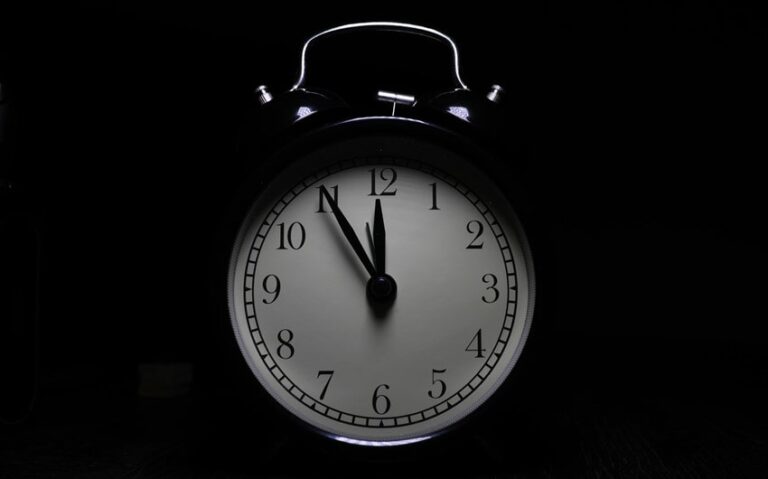Can You Take a Bath on New Year’s Day or Will It Wash Away Luck?
Some traditions say you shouldn’t take a bath on New Year’s Day. Others swear by a long soak to start the year fresh. So what’s the truth—can you take a bath on New Year’s Day without rinsing away your good fortune? Here’s what to know before you run the tap.
The Belief: Bathing Might Wash Away Your Luck
The idea that bathing on New Year’s Day can bring bad luck is rooted in age-old beliefs across multiple cultures. In Chinese tradition, for instance, water represents wealth and fortune. Washing your body—or even doing laundry—on the first day of the year is seen as symbolic of scrubbing away that prosperity. You might be physically cleaning yourself, but spiritually, some believe you’re sending away all the blessings meant for the year ahead.
In parts of the American South, similar customs exist. Elders often warn against washing clothes on New Year’s Day, saying you risk “washing away” a family member, implying death or misfortune. The fear is not literal; it’s a ritualized way of respecting the importance of beginnings. If the year begins with removal, loss, or cleaning out, it may set a tone of absence rather than abundance.
These beliefs highlight something deeper: your actions on New Year’s Day are symbolically magnified. It’s less about what you physically do, and more about the intention and meaning attached to that act. Bathing becomes a stand-in for fate itself. Are you rinsing away the past, or flushing away your future?
Bathing as a Spiritual Reset or Ritual Cleansing
Now shift perspectives. In many spiritual and wellness practices, bathing is considered sacred. Rather than being a risky act, it’s treated as a ritual of renewal and purification. A bath on New Year’s Day isn’t just about bubbles—it’s about transition, intention, and clarity.
For example, in pagan and Wiccan traditions, ritual baths are used to cleanse one’s energy before important ceremonies. These aren’t about physical cleanliness; they involve herbs, salts, oils, and affirmations to wash away emotional or spiritual clutter. A New Year’s bath, in this light, becomes an intentional pause—a moment to reflect, release, and realign.
If you light a candle, set an intention, and soak in silence or reflection, you’re not draining your luck—you’re inviting it. You’re acknowledging that while you can’t control time, you can choose how you step into it.
Cultural Contrasts: Where Bathing Is Encouraged
In some cultures, bathing on the first day of the year is not only accepted—it’s expected. In Japan, for instance, many people participate in an ōmisoka bath on New Year’s Eve, cleansing themselves in preparation for the new year. Cleanliness, both physical and spiritual, is a theme throughout Japanese New Year customs. The idea is to greet the year fresh and whole.
Similarly, in parts of India, ritual bathing in rivers like the Ganges on holy days is believed to wash away sins and invite divine blessings. The act of submerging yourself in water is a gesture of surrender, purification, and hope. So while one belief warns you not to bathe for fear of loss, another encourages it as a form of sacred welcome.
This contrast shows you how culture shapes meaning. There’s no universal rule—only the meaning you bring to the moment.
Symbolism of Water in Different Belief Systems
Water is one of the most ancient symbols in human storytelling. Across spiritual systems, it often represents emotion, change, life, and transition. Consider these meanings:
- In Christianity: Water is tied to baptism, a symbol of rebirth and cleansing of the soul.
- In Buddhism: Flowing water represents impermanence—the constant state of change in life.
- In Hinduism: Water is a purifier and is used in nearly every sacred ritual to bless and cleanse.
- In African traditions: Water spirits like Mami Wata are associated with healing, femininity, and transformation.
So what does this mean for your New Year’s Day bath? It means you get to decide what you’re stepping into. Are you washing away joy, or are you cleansing fear? Are you draining hope—or making room for more of it?
The Psychology of Rituals: Why the First Day Matters
Even if you don’t consider yourself spiritual or superstitious, there’s a psychological reason the idea of a “fresh start” matters. Studies show that people are more motivated to pursue goals when they believe they’re at a temporal landmark—a birthday, a Monday, the start of a new year. This is known as the “fresh start effect.”
When you attach meaning to an act on January 1, it creates a sense of control, structure, and motivation. If you begin the year with intention—even in small ways like journaling, meditating, or bathing—it can positively influence how you approach the days that follow.
So a bath isn’t just a bath. It’s a signal. You’re telling your brain: this matters. I’m not drifting—I’m choosing. Whether your ritual is a soak or a quiet cup of tea, what matters is that it grounds you in purpose.
Modern Interpretations: Designing Your Own New Year Ritual
You don’t have to adopt ancient customs word-for-word to benefit from ritual. You can create your own. Maybe your New Year’s Day includes:
- A warm bath with eucalyptus and sea salt to release stress
- A playlist of songs that make you feel powerful and calm
- A short journal session with prompts like “What am I ready to release?” and “What am I open to receiving?”
- Placing a small item in your bath—like a crystal or flower—representing what you want to welcome
These small acts don’t have to be dramatic. They just have to be true to you. When you bathe with clarity, you’re not risking luck—you’re embodying hope.
Common New Year Superstitions Around Water
If you’re still wondering what other water-related superstitions exist on New Year’s Day, here are a few curiosities:
- Don’t wash dishes: Some believe this, too, washes away good fortune or family ties.
- Avoid flushing water unnecessarily: In some households, people minimize water usage to “hold onto” prosperity.
- Use special water: Some traditions involve collecting “new year’s water” from a stream, river, or even rain—believed to carry divine energy.
Again, these aren’t hard laws—they’re cultural expressions of reverence. If a tradition makes you feel connected, observe it. If it feels limiting, adapt it. The goal isn’t perfection—it’s presence.
Should You Take That Bath?
Ultimately, the question isn’t “can you take a bath on New Year’s Day?”—it’s “what does a bath mean to you?” Are you acting out of fear or clarity? Are you avoiding misfortune or inviting magic?
You can respect the emotional truth behind old beliefs while still doing what nourishes your soul. If that means you delay the bath to honor your grandmother’s superstition, beautiful. If that means you light candles and soak to reclaim your sense of calm, equally beautiful.
Let your actions reflect your values, not your fear. That’s how you step into a new year with power, grace, and intention.






